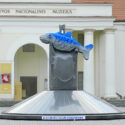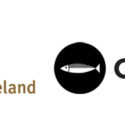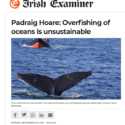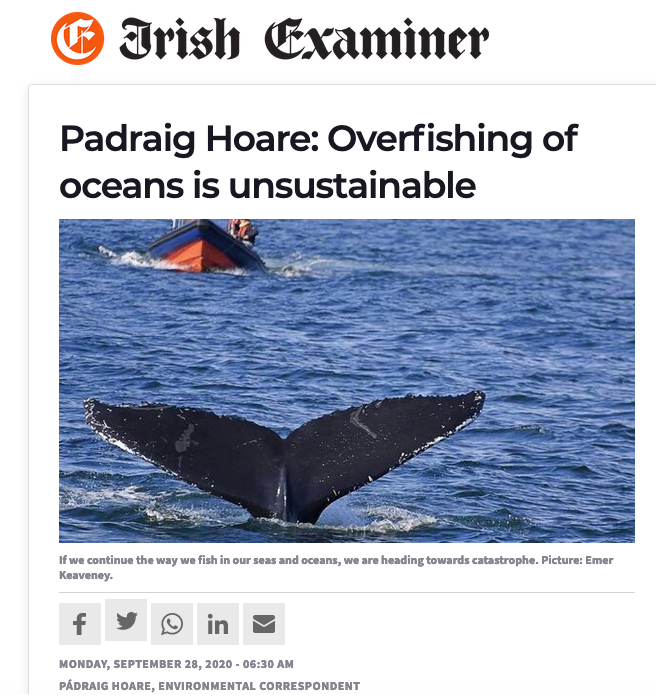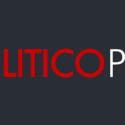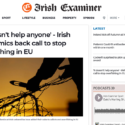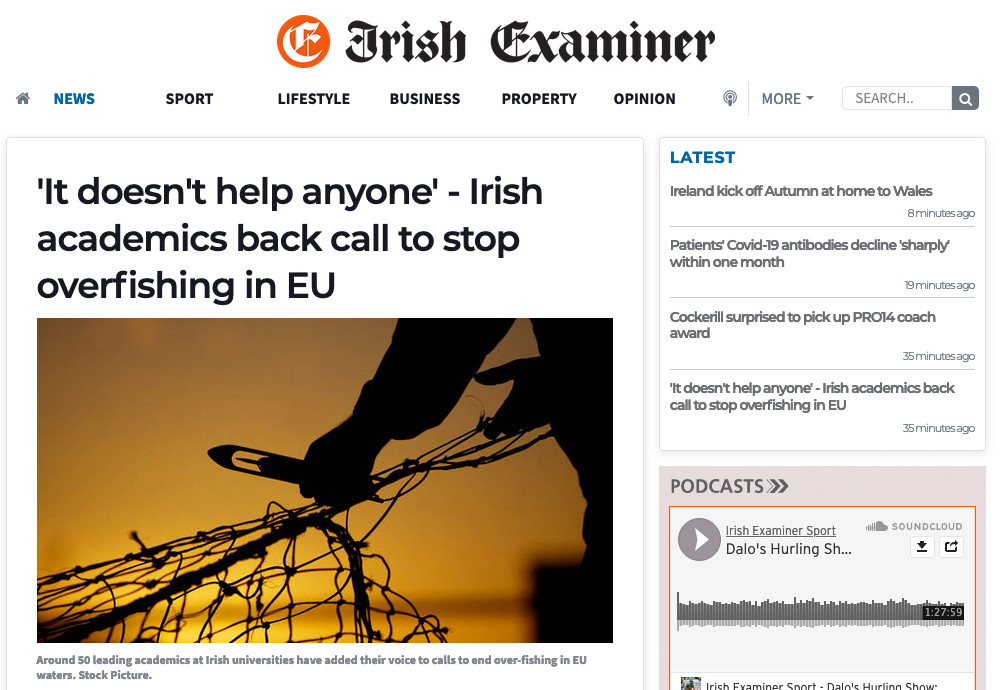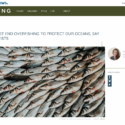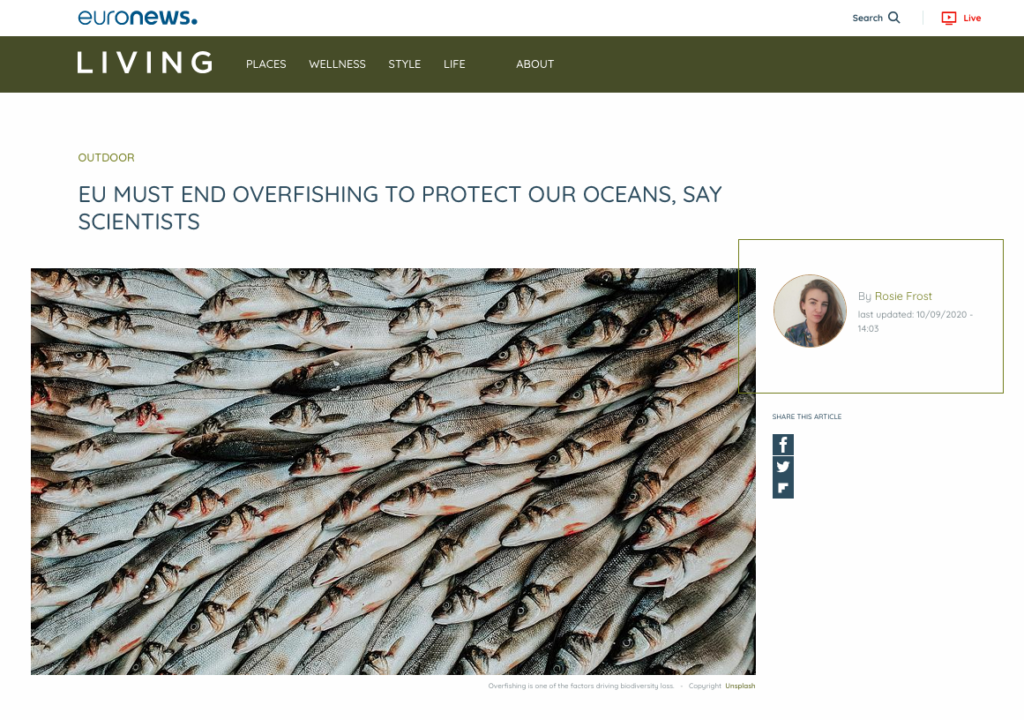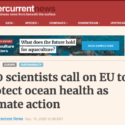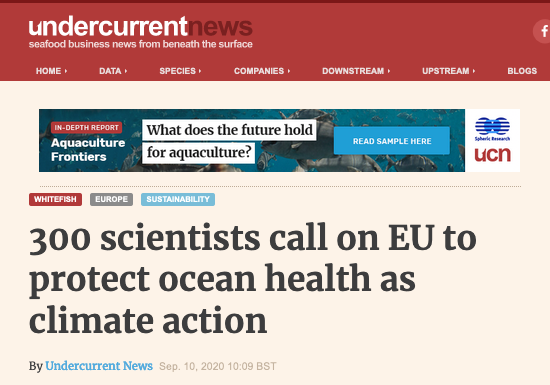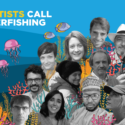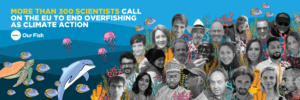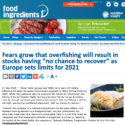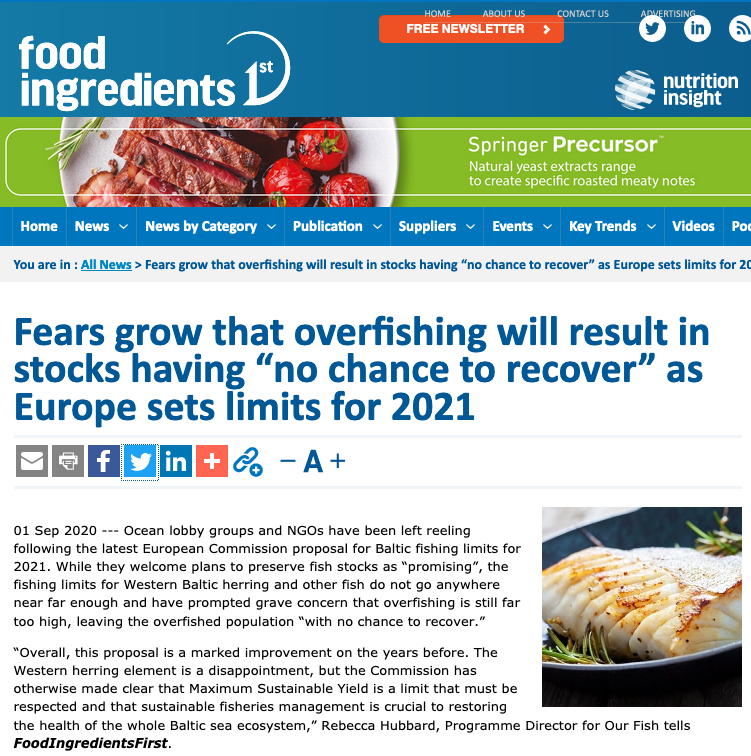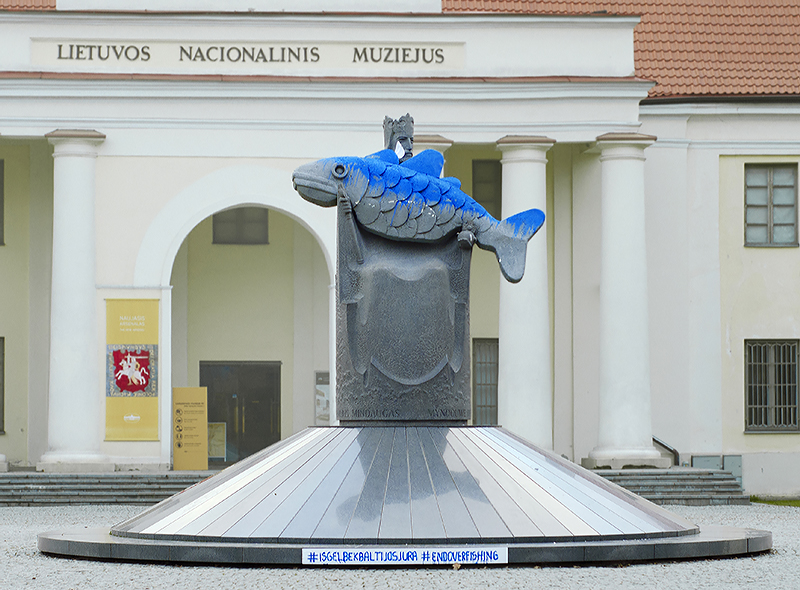
German EU Presidency has opportunity to match Chancellor Merkel’s Commitment to Healthy Oceans
Luxembourg, 19 October 2020:- As EU Fisheries Ministers gather today in Luxembourg to set fishing limits for the Baltic Sea in 2021, a series of messages to EU Commissioner Sinkevičius and Baltic state fisheries ministers appeared at landmarks in of Lithuania, Germany, Poland and Denmark, calling for an end to overfishing.
In Vilnius, Lithuania, the hometown of European Commissioner for the Environment and Oceans and Fisheries Virginijus Sinkevičius, the iconic statue of King Mindaugas was seen holding a massive cod, accompanied by the messages #IsgelbekBaltijosjura (Save the Baltic in Lithuanian) and #EndOverfishing – in an apparent plea to the Commissioner to consider the legacy he will bequeath to future generations of Baltic children.
“Commissioner Sinkevičius hails from the Baltic Sea, where the children of the region will inherit the legacy of his actions. Just two weeks ago, as he opened the ‘Our Baltic’ Conference, the Commissioner promised that sustainable fishing levels are a priority goal for the EU. We expect the Commissioner to deliver on his word – Lithuanians, and indeed all Europeans, are looking for more than just rhetoric from his leadership” said Our Fish Programme Director Rebecca Hubbard.
The annual EU Agriculture and Fisheries Council (AGRIFISH) is meeting in Luxembourg, from October 19 to20th. Chaired by the German Presidency, the meeting will set Total Allowable Catches (TACs) – fishing limits – for fish caught in the Baltic Sea for 2021 [1]. Under the reformed Common Fisheries Policy (CFP) – and thus by law, the EU must set TACs in line with scientific advice by 2015, or by 2020 at the latest [2]. In October 2019, AGRIFISH ministers set five out of ten fishing limits for fish caught in the Baltic Sea in 2020 far above the scientific advice and CFP requirements [3].
During the weekend, in Warnemuende, in the coastal area of Graal-Müritz-Torfbrücke in Germany, a banner with the message reading: Rettet Die Ostsee, Überfischung Stoppen, Jetzt! called on Germany to: Save the Baltic Sea, Stop Overfishing Now!
“The German Presidency of the EU has a critical part to play; not only is Germany a key Baltic fishing country, but Chancellor Angela Merkel just last week committed to the UN Leaders Pledge for Nature, stating during the UN Biodiversity Summit that ‘we have to manage land and sea more sustainably’. But if the German Presidency facilitates fishing limits in the Baltic Sea that defy scientific advice, and result in continued overfishing, it will be specifically going against Chancellor Merkel’s commitment to a healthy ocean, and prove an international embarrassment”, she added.
In Poland, a message – delivered by a cod- the city symbol – calling on the Baltic decision makers to end overfishing.
Across the Baltic Sea, on the Langelinie promenade in Copenhagen, the famous Little Mermaid statue was seen embracing a cod with a message calling for an End to Overfishing. Last week, the Danish Minister for Fisheries, Mogens Jensen and Minister for Environment, Lea Wermelin received a statement signed by over 300 scientists calling for an end to overfishing as climate action.
Estonia currently holds the Presidency of BALTFISH – the high level group of Baltic Fisheries Ministers responsible for agreeing regional fisheries management conditions. As President, Estonia also plays an important role in this year’s deliberations over fishing limits, as the regional ministers usually agree to a preliminary joint position before entering the AGRIFISH Council. It will be interesting to see if Estonia also pushes for sustainable fishing limits considering that it recently signed up to the Our Baltic Declaration which re-committed to doing so [4].
“Today’s Council meeting is an opportunity for EU ministers to put their money where their mouth is and demonstrate that they are real leaders with integrity; follow the scientific advice, end overfishing of the Baltic, and deliver immediate action on climate and the biodiversity crisis”, concluded Hubbard.
International and regional NGOs have prepared detailed recommendations for fishing limits and relevant fisheries management options to restore the Baltic Sea fish populations and the health of the Sea, based on scientific advice from the International Council for the Exploration of the Sea (ICES) [5].
BACKGROUND
EU countries have overfished the Baltic Sea for many years, leading to a decline in the health of fish populations and subsequently, the livelihoods of fishermen. In 2019, the situation became so bad that the EU agreed on a program to buy up a number of fishing vessels, in order to address the problem of there being too many boats for too few fish [6]. This is a misguided and expensive solution – these kinds of subsidies have been proven ineffective in addressing overfishing [7]. On the contrary, it has been demonstrated that if fishing limits followed scientific advice, catches and profits would increase, but these have been ignored by fisheries ministers [8].
ENDS
Contacts:
Dave Walsh, Our Fish Communications Advisor, +34 691 826 764, dave@our.fish
Notes:
[1] EU Agriculture and Fisheries Council, 19-20 October 2020
https://www.consilium.europa.eu/en/meetings/agrifish/2020/10/19-20/
[2] Common Fisheries Policy: Regulation (EU) No 1380/2013 of the European Parliament and of the Council
https://eur-lex.europa.eu/legal-content/EN/TXT/?uri=CELEX%3A32013R1380
[3] Our Fish, 15 October 2019: EU Fisheries Ministers Ignore EU Law and Nature’s Limits for Baltic Sea
https://our.fish/press/eu-fisheries-ministers-ignore-eu-law-and-natures-limits-for-baltic-sea/
[4] Ministerial Declaration ‘Our Baltic’ Conference, 28th September 2020: Declaration of the Ministers of Environment, Maritime Economy, Agriculture and Fisheries of Baltic Sea Member States and of the Commissioner for ‘Environment, Oceans and Fisheries’
https://ec.europa.eu/info/sites/info/files/ministerial_declaration_our_baltic_conference.pdf
[5] Joint NGO recommendations on EU Baltic Sea fishing opportunities for 2021
[6] Informal deal on measures to support fishermen and sustain fish stocks in the Baltic Sea
[7] Seas At Risk, BirdLife Europe and Central Asia, 2020. “Ending “temporary cessation” for good: How an EU subsidy is driving overfishing”
https://seas-at-risk.org/images/pdf/Report_EMFF_temporary_cessation_SAR_BirdLife_2020.pdf
[8] New Economics Foundation 2019, Landing the Blame: Overfishing in the Baltic Sea 2020. https://neweconomics.org/2019/12/landing-the-blame-overfishing-in-the-baltic-sea-2020
About Our Fish
Our Fish is working to end overfishing and restore a healthy ocean ecosystem. By collaborating with others, and deploying robust evidence, we are calling for an end to overfishing as a critical and significant action to address the biodiversity and climate crisis. https://our.fish
